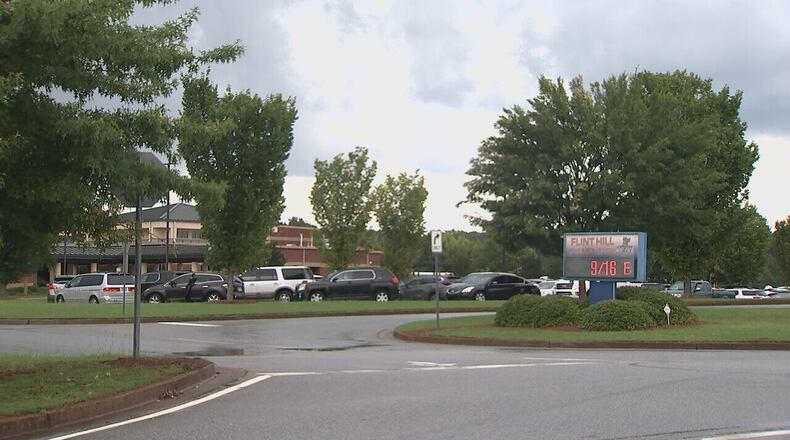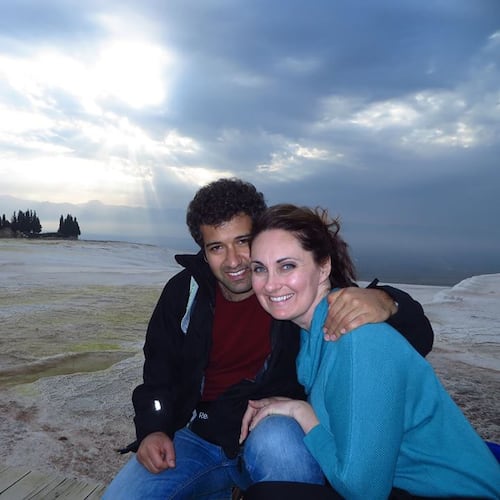Georgia children have returned to classrooms just as the first pediatric cases of monkeypox are being reported, fueling new anxiety in parents, teachers, and school officials so weary of the unrelated COVID-19 virus.
Georgia Department of Public Health officials — who say the risk of transmission in schools is “extremely low” — are advising school officials on steps to take if they should have positive cases in their classrooms. But citing HIPAA privacy rules, DPH does not plan to release county information on any cases, as there is no increased risk to the general public, the agency said.
“Since full investigations and contact tracing occur on each case and monkeypox is primarily spread through skin-to-skin contact, there is no public health reason to release county information, on any case, as there is not an increased risk to the general public regardless of the age of the infected individual,” DPH spokesman Nancy Nydam said in an e-mail.
Dr. Angela Highbaugh-Battle, who practices in St. Marys and is president of the Georgia chapter of the American Academy of Pediatrics, said rising monkeypox cases are stoking concerns among parents still worried about the continued spread of COVID.
Public health experts say it is important to take precautions but there is no reason to panic, as the disease is primarily contracted by direct skin-to-skin contact with the virus and, far less likely, by contact with contaminated surfaces or linens. Current data show that men who have sex with men make up the majority of cases in the current monkeypox outbreak. The Centers for Disease Control and Prevention says children can acquire monkeypox through close skin-to-skin contact such are being held or cuddled and by sharing contaminated items such as towels, bedding, cups and utensils.
In the wake of the three confirmed pediatric cases reported on Wednesday, DPH has notified school districts for the first time on how to handle any monkeypox cases in their classrooms. The letter included a link to guidance from the CDC on what to do when there’s a monkeypox case in schools, which includes cleaning and disinfecting areas where the infected person spent time, supporting contact tracing efforts and advising parents and staff about preventing the spread of monkeypox in a fact-based way that avoids stigma.
At least one of the children diagnosed with monkeypox is of elementary school age and one of the three lives in metro Atlanta. All three are linked to household transmission. Nydam told The Atlanta Journal-Constitution that household transmission includes touching objects or fabrics such as clothing, bedding, or towels, and surfaces that have been used by someone with monkeypox.
“We have become aware of some confusion about the expected procedures for schools as it relates to suspected monkeypox cases among students, teachers or staff,” Dr. Kathleen Toomey, the state public health commissioner said in the letter. Toomey told schools and superintendents they should notify their district health department and get advice about the next steps and ensure contact tracing if they become aware of any monkeypox cases. The letter also shared links to CDC guidance for schools.
The number of monkeypox cases in Georgia rose to 1,240, including the three pediatric cases and 19 women, according to the latest data released Wednesday by DPH. The CDC reports that U.S. monkeypox cases include 17 children ages 15 and under.
Newton County Schools System disclosed Tuesday that one elementary-school-aged child, a student at Mansfield Elementary School, had been diagnosed with monkeypox. Another child in the district who attends Flint Hill Elementary has been tested for the disease, according to school officials, but results of that test have not been released.
Newton County School System officials have notified parents at both schools about the cases via School Messenger. Parents of students who may be considered close contacts of the ill students will receive additional advice from school officials about next steps.
Like other reportable illnesses, health care providers must report monkeypox cases to DPH, but the state Department of Education has no authority to require schools to report cases, a DOE spokesperson said.
The Georgia Department of Education also has no role in producing advisories about infectious diseases but does help state health officials communicate their guidance to schools.
”Following their guidance we want to make sure we’re protecting our students and staff so we’ve got to definitely lean on the experts there in that field,” said state Superintendent Richard Woods.
DPH would not say whether the other two pediatric cases occurred in children who are attending school or daycare. The agency would not say if the three pediatric cases are being investigated for sexual abuse. And the state agency would not answer questions about where or whether there are other potential pediatric cases in Georgia awaiting test results.
Monkeypox causes flu-like symptoms such as fever and chills, and a rash that can take weeks to clear. The disease and its mode of transmission differ from COVID-19, which is an airborne disease and relatively easily transmitted in a school setting. Monkeypox virus is far less transmissible than the coronavirus because it is spread primarily through prolonged skin-to-skin contact, typically requiring direct contact with an infected person’s rash.
“I would tell parents that the risk of transmission of monkeypox to children in a school setting is low. It’s not zero,” said Dr. Angela Highbaugh-Battle, the St. Marys pediatrician.
She emphasized the importance of good hygiene for children ... “they should wash their hands or sanitize their hands before and after they eat, and they need to wash their hands after they use the restroom. Also, wash or sanitize their hands after they come into play.”
Dr. Jayne Morgan, executive director of the COVID Task Force at Piedmont, advises adults at high risk for monkeypox to get vaccinated to protect themselves, other adults and any children in their household.
— Staff writer Ty Tagami contributed to this article.
About monkeypox
Infections with the strain of monkeypox virus identified in this outbreak—the West African strain—are rarely fatal. So far, no monkeypox deaths have been reported in the U.S.
More than 99% of people who get this form of the disease are likely to survive. However, people with weakened immune systems, children under 8 years of age, people with a history of eczema, and pregnant or breastfeeding mothers may be more likely to get seriously ill or die.
Symptoms of monkeypox can be extremely painful, and the rash may leave those infected with permanent scarring.
SOURCE: CDC
About the Author
The Latest
Featured



